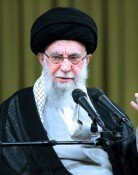Probe Focuses on Redundant Projects
Probe Focuses on Redundant Projects
Posted March. 22, 2006 03:12,
The government is under scrutiny after the Board of Audit and Inspection (BAI) decided to conduct an unusual special audit based on a rising level of concern over overlapping projects between government ministries and offices, local government organizations, and government affiliated investment organizations.
The BAI found 205 conflicting and overlapping government projects in two earlier preliminary investigations. Previous administrations also suffered project overlap, but it is the first time that the BAI has decided to single out specific government projects for scrutiny.
This is raising doubt over the current administrations ability to coordinate its affairs. Some point out that President Roh Moo-hyuns decentralized ruling style over government organizations causes conflicts and makes coordinating efforts difficult.
Most conflicts are between government ministries and offices-
Among the 205 conflicting projects, conflicts between government ministries and offices account for the largest share at 35 percent, or 71 cases. A glaring example is a dispute over communications and broadcasting services. The Ministry of Information and Communication and the Korean Broadcasting Commission are fighting to take the upper hand in the provision of the converged services, including Internet TV.
In another example, four ministries are competing to push for similar business opportunities. The Ministry of Information and Communication, the Ministry of Labor, The Ministry of Administration and Home Affairs, and the Ministry of Education and Human Resources Development are all working on closing the digital gap. The information ministry is doing it under the name of broadband internet service, while the administration is carrying out an information village in farming and fishing communities project.
In terms of causes of conflict and overlap, organizational or regional selfishness ranks first with 108 cases (53 percent), followed by cost sharing at 37 cases (18 percent), and cases of a lack of cooperation and consultation at 30 (15 percent).
A notable conflict the BAI has cited as stemming from this selfishness is a discord between Seodaemun-gu in Seoul and the city of Goyang in Gyeonggi Province over the construction of a food waste disposal facility. Both of them are opposed to a facility in their areas.
.
Another case is between the city of Hwaseong and seven areas including Dongjak-gu in Seoul over the right to use a park cemetery located in Hwaseong. Authorities in those seven areas bought a part of the cemetery and assigned it to their citizens. But Hwaseong is still denying their right to use the park cemetery by saying that they were not consulted in the process. If the city does not change its mind, the seven areas will lose 6.7 billion won in deposit money.
Many conflicts also involve disagreements over cost sharing. The Korea Forest Service and the Ministry of Defense have dissenting ideas about charging for the use of national forests. The forest service insists that the defense ministry pay for the use of national forests. But it refuses to pay the approximately 26 billion won it has been charged.
Coordination lacking-
Experts cite a lack of a coordination within the participatory government as the cause for the overlapping projects and conflicts.
Yoo Seok-chun, a sociology professor at Yonsei University, said, The Roh Moo-hyun administration has stimulated government organizations to raise their voices in the name of participation. But it has failed to come up with measures to harmonize the different voices.
Some even argue that the cause of the troubles lies in the fact that President Roh does not allow a specific group to have strong authority, preferring to rely on competition. They say that government ministries set up a plan that is out of their power in order to survive the fierce competition, and that this causes conflicts and project overlap. That explains why some in public life even go as far as to call the current administration a headless one.
A government official said, To be frank, there is no other way to survive. When government departments seek to produce tangible results, conflicting and overlapping projects are the inevitable result. Kim Dong-wook, a political science professor at Seoul National University, said, The participatory governments coordination ability with the president taking the lead is significantly weakened compared to its predecessors as a result of decentralization.
Min-Hyuk Park mhpark@donga.com





![[단독]폴란드, 韓 해군 최초 잠수함 ‘장보고함’ 무상 양도 안받기로](https://dimg.donga.com/c/138/175/90/1/wps/NEWS/IMAGE/2026/02/27/133437397.1.jpg)

